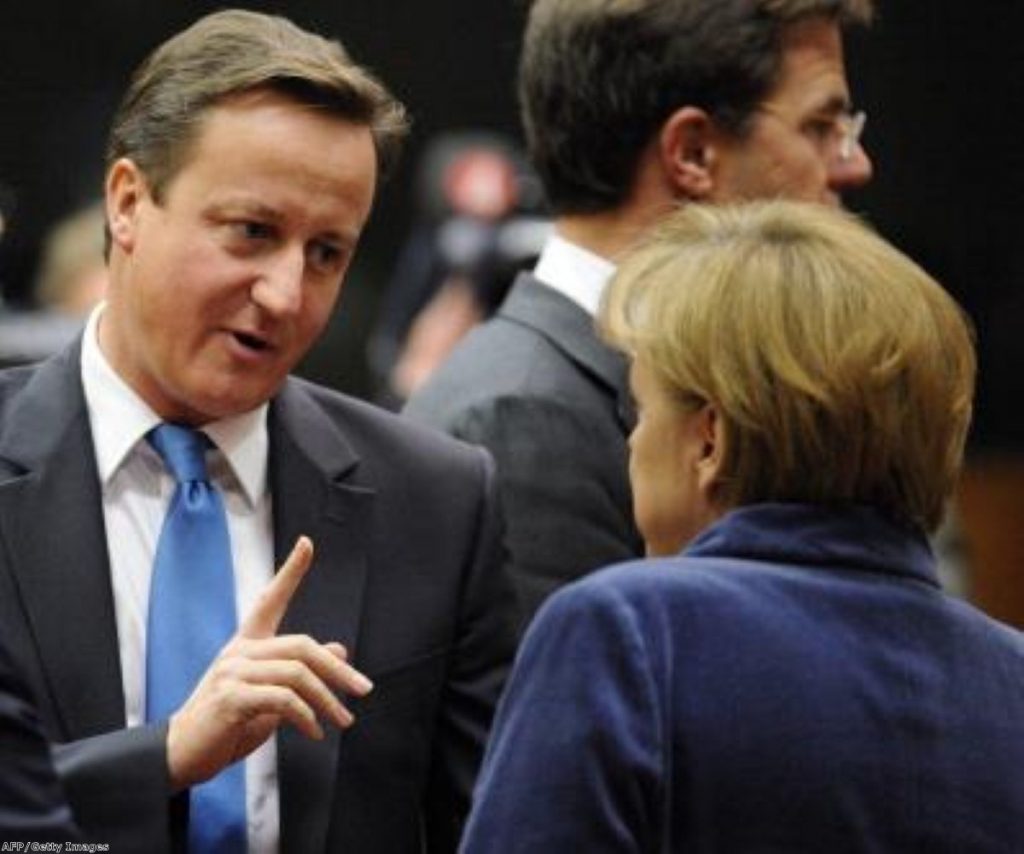Osborne ups stakes with EU ultimatum
Chancellor George Osborne has offered a defiant response to German and American warnings about a potential British exit from the EU.
At the end of a week in which key UK partners have begun making serious public warning signs about plans to offer voters a referendum, the chancellor used an interview with Die Welt to ramp up the pressure on the EU.
"I very much hope that Britain remains a member of the EU, but in order that we can remain in the European Union, the EU must change," Osborne told the German newspaper.
"The British population is very disappointed with the EU and the people have the feeling that too many decisions are being made too far away in Brussels.


"Our citizens ask whether Europe can really solve their most pressing problems and create jobs and prosperity."
It follows comments by Gunther Krichbaum, a representative of chancellor Angela Merkel's Christian Democrats party, who warned on a visit to London a British exit from the single market would be a "disaster" for the UK economy.
He said the idea of renegotiating would open up a "Pandora's box" of member-states trying to improve the terms of their own relationships with the EU – a move which would be "neither wise nor useful".
"There is certainly a risk that [a referendum] could paralyse efforts for a better Europe and deeper integration. Britain would risk being isolated. That cannot be in Britain's interests," Krichbaum said.
"You cannot create a political future if you are blackmailing other states. That will not help Britain. It needs a Europe that is stable. It needs markets that are functioning."
Earlier this week a senior Obama administration official in the US state department suggested the special relationship's value could be diluted if the UK leaves Europe.
Downing Street said earlier today Obama had been "supportive" when Cameron laid out his plans in a recent phone-call, however.
American and German concerns come as anticipation continues to grow ahead of Cameron's speech on Britain and Europe, which the Sun newspaper reports is now fixed for January 22nd.
The prime minister is expected to confirm that renegotiated terms of the UK's relationship with Europe will be put to the British people for a referendum at some stage in the next parliament, possibly 2018.
Such moves are likely to lead to even deeper unpopularity for the British in European capitals. Labour is warning the UK is already being pushed to the fringes by the emergence of a two-tier EU, as the 17 eurozone states pursue closer fiscal integration to stave off the ongoing eurozone crisis.
Krichbaum added: "It is certainly possible to convince people of advantages of the EU. But there is always a risk that the referendum becomes – as Charles de Gaulle put it – less about the question asked and more about the person who's asking it."
Cameron's Conservative party is deeply divided on Europe, but turmoil on the continent has strengthened the hand of eurosceptics and led to two humiliating Commons defeats for the coalition.
Moves towards a referendum will come at a cost, however. Cabinet minister Ken Clarke's resignation is a possibility, according to reports, while deputy prime minister Nick Clegg has made clear the Liberal Democrats support the status quo.
The Conservative party's leader in the European parliament, MEP Richard Ashworth, argued today that Britain should pursue an "evolutionary solution" over the "nuclear option" of a withdrawal.












